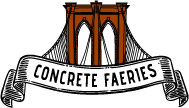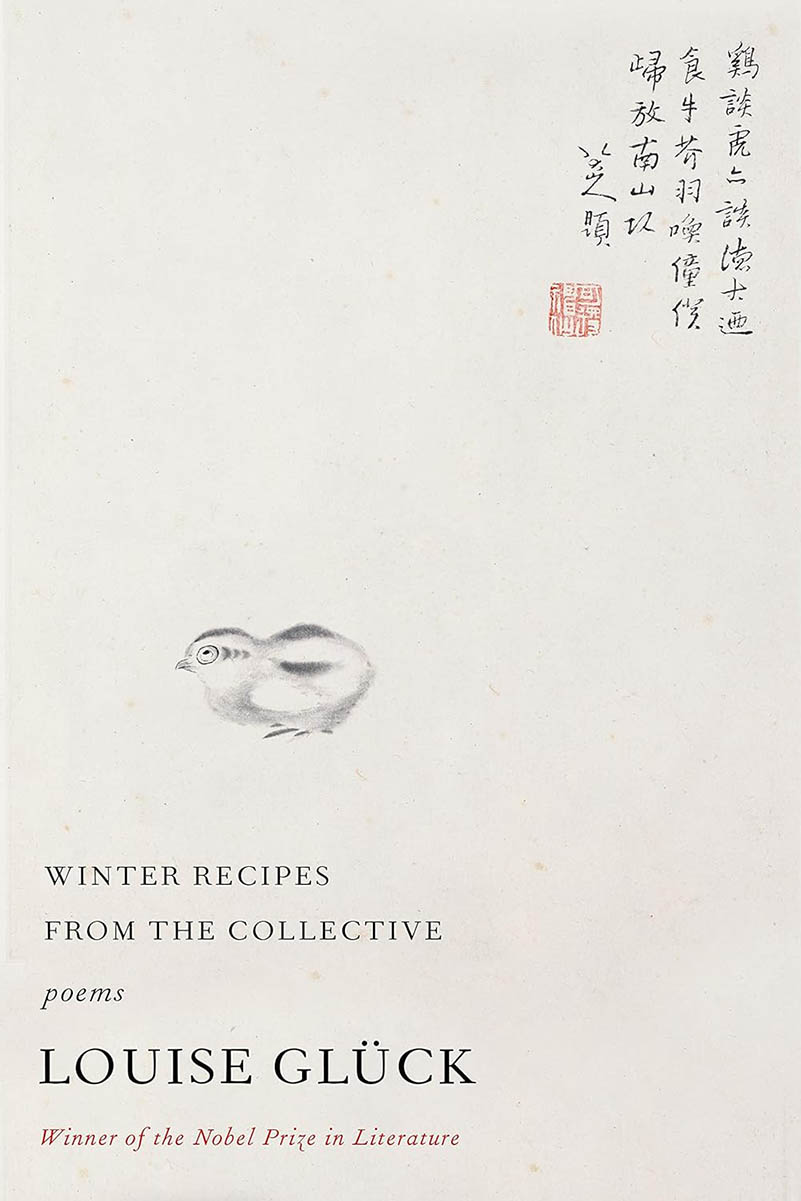Winter Recipes from the Collective
by Louise Glück
Louise Glück has a certain style that resonates throughout her newest poetry collection, titled Winter Recipes from the Collective. It is a style submerged in gorgeously-written winter passivity and in the silencing effect of snow. A line stands out in the collective’s titular poem: “The book contains only recipes for winter, when life is hard. In spring, anyone can make a fine meal.” Glück successfully brings out the light during the dreaded “month[s] of darkness.”
Light becomes a recurring and crucial motif throughout, with the typical bulbs in the Christmas trees; the faded television screens in hospitals; the glisten of a grandmother’s porcelain bowl; the “rainbow of children splashing in the clear lake;” and even the brightness of the crinkled foil encasing hotel chocolates. Glück takes the seemingly trite topic of winter and snow, and creates poetic masterpiece; she somehow manages to make the deadening chill of winter, as she writes in “Presidents’ Day,” “quite lifelike.”
Glück utilizes her skill of storytelling to construct a world that seems to carry through every single poem, a world that differs slightly from the one we have become used to—hers is drenched with softened nostalgia for a
prelapsarian time of orange groves and within fogged arboretums. She is a master of her craft, and completes her task beautifully and with simplicity—the task being to relieve us from the dirty chaos in our reality.
Louise Glück has an applaudable history of poetic expertise; she has been a published author for more than fifty years and has recently won the 2020 Nobel Prize for Literature. In her acceptance speech for said award, she stated that when she was a teen, she felt that “[Emily] Dickinson had chosen [her], or recognized [her].” She then goes on to quote a line of Dickinson’s: “Then there’s a pair of us — don’t tell! / They’d banish us, you know…”
Interestingly, this line mimics one in the first poem, titled “Poem,” in Winter Recipes from the Collective: “…they fly away. But you and I / don’t do such things—.” Not only does she imitate the Dickinsian em-dash and similarly utilizes the second person, Glück’s words feel whispered, and as she says in her speech, intimacy is “Dickinson’s subject.”
Glück seems to reference her past in this line, having faint memories of her youth when she first took inspiration from
Dickinson, following through with this theme of nostalgia of hers. Glück doesn’t disappoint with her newest collection of poetry.



